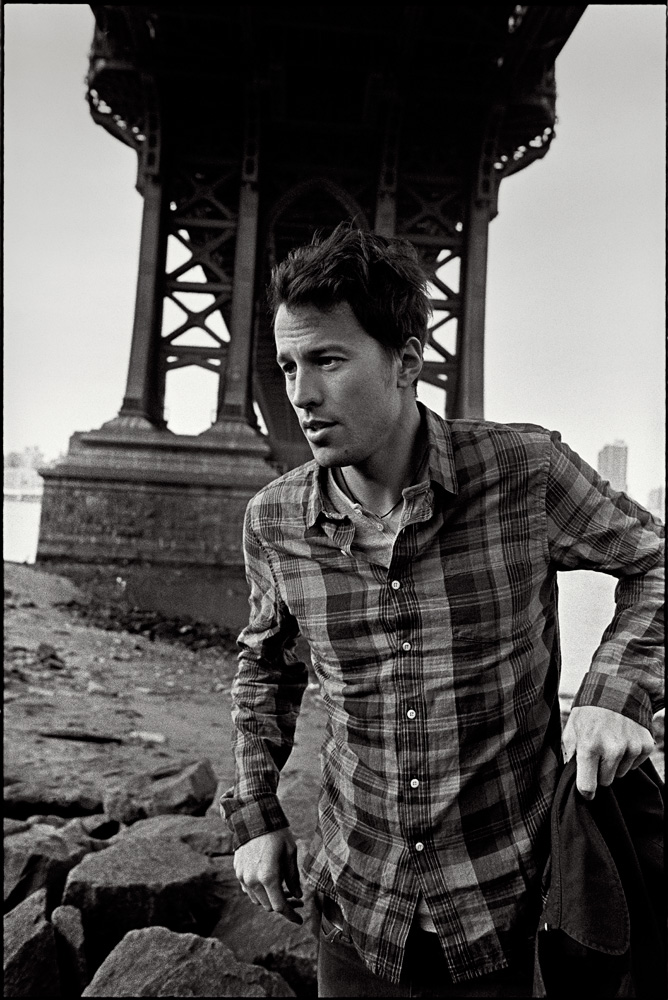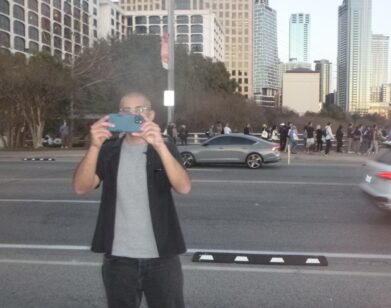Cary Joji Fukunaga

James Franco spots young director Cary Joji Fukunaga, whose first feature involves brutal gangs, desperate immigrants, dangerous train rides, and 2,000 extras.
“Cary’s film is inspiring,” says actor and fan James Franco of 31-year-old director Cary Joji Fukunaga’s first feature film, Sin Nombre, which opened in theaters this spring. “He took it upon himself to go to Mexico and research this film. He rode on top of trains, met people in prison, and ultimately shot the film in the locations where the events depicted took place. His dedication and skill as a filmmaker have resulted in a moving portrayal of something that until now I have only read about. I think he is every young filmmaker’s idol.” Those are strong words from a seasoned actor currently enrolled in film school at NYU—the very same university where Fukunaga is using the devastating across-bordersdrama in question as his graduate thesis project. Fukunaga seems startlingly young to be able to handle such an intense political production, until you realize that the Oakland, California, native of Japanese and Swedish heritage, started polishing up on his own writing-and-directing credentials at an early age. “I was imagining films in my head and trying to gather friends together to make movies since I was a kid,” he says. “I tried to do comedy skits and a horror film. I wrote my first script, which was 50 pages, at age 15. It was about two brothers in love with the same nurse while they’re convalescing in a Civil War hospital.” Clearly, Fukunaga has a penchant for extravagant historical narratives. His first big opportunity came in 2004 with his short film Victoria para Chino, recounting the true story that ended in authorities discovering a tractor-trailer with nearly 80 illegal Mexican immigrants inside, 17 of them already dead. “I had read about that in The New York Times,” the young director explains. “And it was while I was doing research for [Victoria para Chino]in Texas that I learned about immigrants crossing the Mexican border on trains, and about the bandits and the gangs—basically the story you see in Sin Nombre.” When Fukunaga’s short film received acclaim at Sundance, he got something of a green light to produce his first feature. In the summer of 2005, he went down to Chiapas, Mexico, to research the material firsthand. “I spent about two weeks going to shelters and prisons to meet gang members and different advocacy groups and state security police,” he remembers. “I rode the trains with the immigrants. Pretty much everything you see in the movie, I witnessed. Some bandits killed a Guatemalan immigrant one night when I was aboard.” Sin Nombre revolves around a Honduran teenager trying to emigrate to the United States by riding the tops of trains across the border, and ultimately facing off with grisly Mexican gangs who are robbing immigrants on their way north. What’s most exceptional about the film is Fukunaga’s insistence on accuracy. “I wanted everything to be as authentic as possible, down to the accents and grammar, based on the regions where each character came from,” he says. “The cast needed to be made up of Central Americans. You can’t just cast Diego Luna and expect to get away with it.” The result is a spectacularly rich epic, with about 2,000 extras alone, not to mention the North American railroad system in a starring role. Even though the film won directing and cinematography awards earlier this year at Sundance, Fukunaga doesn’t intend to keep his cinematic eye trained only on the Mexican border. “I’m not going to make it a trilogy,” he promises.
Photo above: Cary Joji Fukunaga in New York, February 2009. Coat: Tommy Hilfiger. Shirt: Converse by John Varvatos. Henley: American Apparel. Jeans: AG Jeans. Cosmetics: Lancôme Men, including Hydrix Balm. Fragrance: Hilfiger by Tommy Hilfiger Styling: Miguel Enamorado. Grooming: Daniel Martin/The Wall Group.






